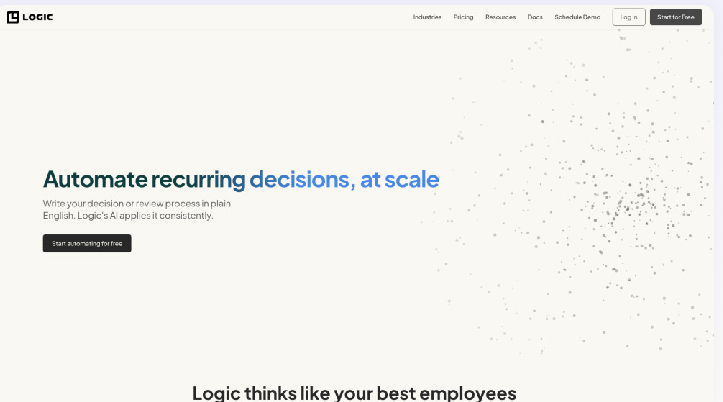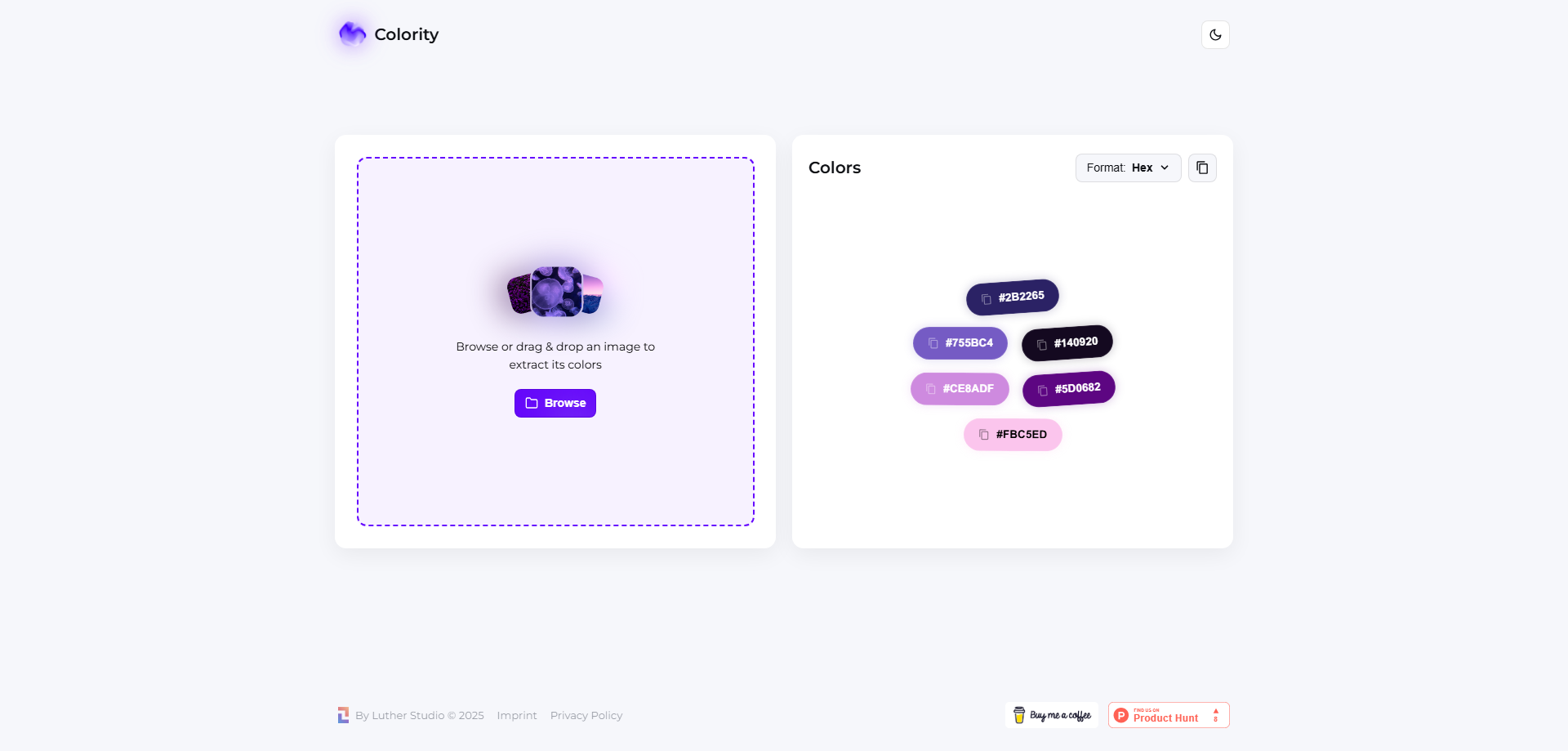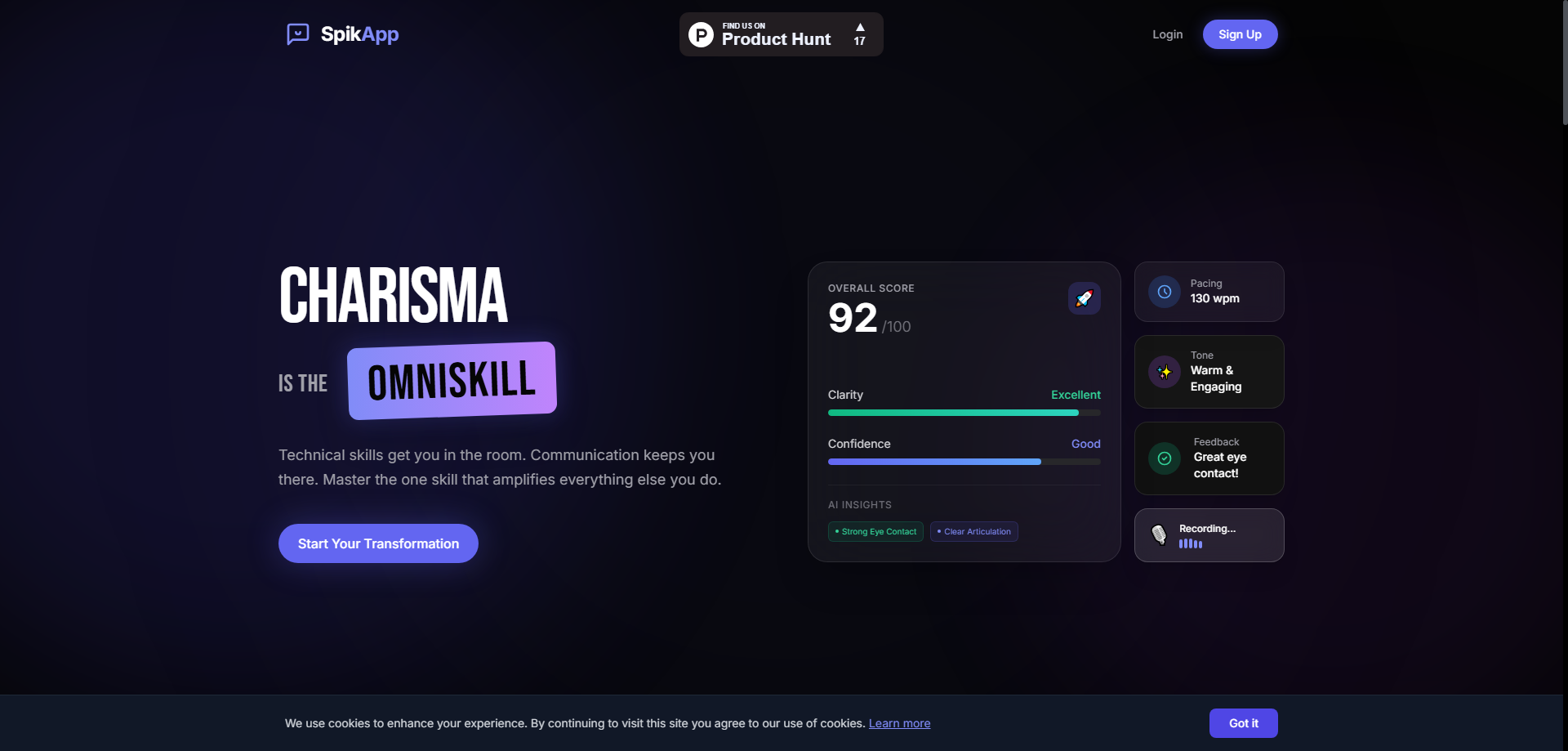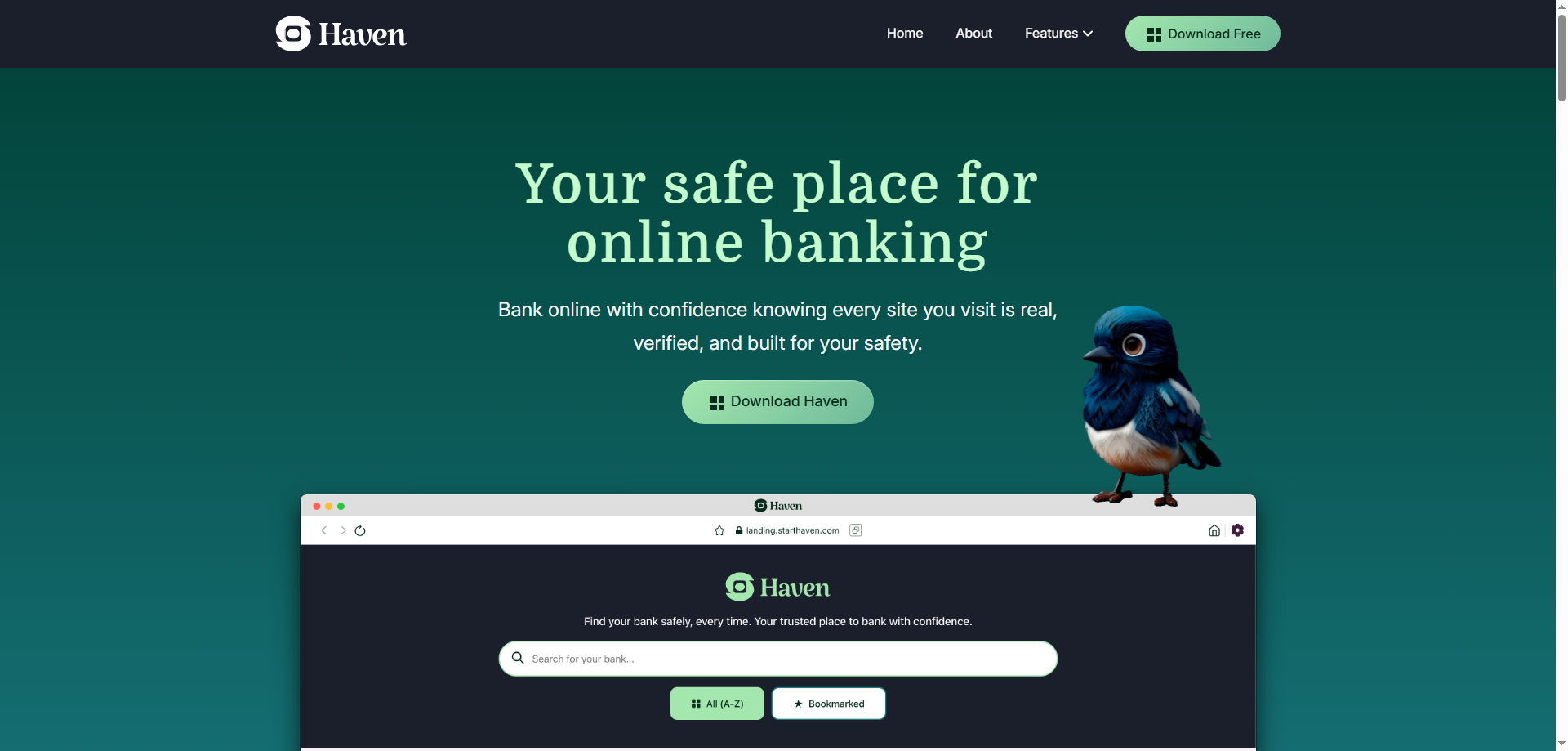What is Logic?
Logic is an intelligent automation platform that converts human-written process documents into production-ready APIs, enabling companies to automate complex decision-making workflows without technical configuration. Instead of writing code or managing integrations, users can simply describe their review or decision process in plain English — Logic’s AI then interprets the instructions, builds the corresponding APIs, and handles testing, versioning, and deployment automatically.
With Logic, businesses can automate recurring decisions such as product moderation, payment disputes, or compliance reviews. The system “thinks” like a company’s best employees, applying defined processes consistently and intelligently across large volumes of tasks. By doing so, Logic bridges the gap between human judgment and machine precision, empowering organizations to scale decisions efficiently while maintaining accuracy and compliance.
How to Use Logic
Using Logic is incredibly simple. Users start by writing or uploading a process document, such as a Standard Operating Procedure (SOP) or internal review guideline. Once submitted, Logic’s AI engine instantly converts the document into a fully functional API that can be deployed across multiple systems.
These APIs can be used through:
- Interactive web apps generated automatically by Logic.
- AI tools such as ChatGPT or Claude, allowing conversational access to automations.
- Automation platforms like Zapier or n8n for seamless workflow integration.
Whenever users need to update a process, they can simply edit the text — Logic automatically applies changes to the live API, ensuring continuous alignment with evolving business rules. No coding, no configuration, just pure automation powered by Logic.
Core Features of Logic
- Plain English to API Conversion – Write or upload a process document, and Logic instantly generates a production-ready API.
- Recurring Decision Automation – Scale repetitive reviews and approvals effortlessly across teams and systems.
- Zero Technical Setup – No need for API keys, prompt engineering, or code configuration.
- Enterprise-Grade Reliability – Built-in versioning, testing, rollback, and monitoring ensure consistent operation.
- Instant Business Rule Updates – Modify decisions by editing your process text instead of rewriting code.
- Multi-Platform Integration – Deploy automations as web apps, AI assistants, or within existing tools.
- Robust Security – SOC 2 Type II certification, encryption at rest and in transit, and 79+ security controls.
Why Logic Matters
In most organizations, knowledge is trapped inside documents — policy manuals, SOPs, and internal workflows that rarely translate directly into digital systems. Logic changes that by transforming knowledge into execution. Every decision-making process, from HR onboarding to quality assurance, can now operate as an intelligent API managed directly by the people who understand it best.
For business teams, Logic removes dependency on engineering teams, enabling instant workflow updates and faster decision cycles. For developers, it ensures reliability, scalability, and security through automated testing and version control. The result is an organization where human intent becomes instantly actionable through automation.
Use Cases of Logic
- Product Listing Moderation – Automate review processes for marketplace listings, ensuring compliance and consistency.
- Payment Dispute Resolution – Apply structured logic to financial claims, reducing manual review time.
- Lead Scoring and Qualification – Evaluate leads dynamically using standardized business rules.
- Statement-of-Work Review – Automate document validation and contract consistency checks.
- Expense Receipt Reconciliation – Automatically approve or flag expenses based on predefined criteria.
- Custom Decision Automations – Build intelligent systems for any repetitive or rule-based process.
How Logic Transforms Workflows
Logic doesn’t just automate; it understands. Its AI interprets human-written logic just as an employee would — but faster, more accurately, and at scale. By transforming natural language into structured APIs, Logic removes bottlenecks and prevents human error.
When a new process document is added, Logic instantly turns it into a digital workflow ready for deployment. It can handle testing, version tracking, and rollback, ensuring every change is safe and auditable. Because Logic automates through language, business leaders can evolve their operations continuously without relying on code.
Security and Reliability
Logic is designed with enterprise-grade protection at its core. The platform is SOC 2 Type II certified, meeting over 79 security controls for data privacy and operational integrity. All data is encrypted in transit and at rest, and Plus and Ultra members’ data is excluded from AI model training. Enterprise customers also receive HIPAA compliance and additional security configurations, ensuring Logic meets even the strictest industry standards.
Plans, Billing, and Flexibility
Logic offers transparent, flexible billing designed to scale with teams of all sizes. Users can upgrade, downgrade, or cancel at any time, with changes applying at the next billing cycle. If usage exceeds task limits, Logic notifies users in advance and provides options to purchase additional task credits — ensuring automation never stops unexpectedly.
There are no penalties for cancellation, and accounts retain access through the end of the billing period. Logic’s goal is simple: deliver value through reliability and control.
Why Teams Love Logic
Teams across industries choose Logic because it combines simplicity, automation, and trust. Non-technical users can manage powerful automations through natural language, while engineers gain confidence in Logic’s structured, testable APIs. By centralizing decision-making into a single intelligent layer, Logic helps organizations reduce errors, accelerate approvals, and ensure consistent outcomes.
Logic enables companies to:
- Convert institutional knowledge into digital workflows instantly.
- Automate operations without compromising flexibility or oversight.
- Keep business logic aligned with real-world processes through continuous updates.
Frequently Asked Questions About Logic
How does Logic handle billing?
Logic bills monthly based on your plan and team size. You can change or cancel anytime, with updates applying at the next billing cycle.
What happens if I exceed task limits?
Logic will notify you before limits are reached. You can upgrade or add more task credits to continue uninterrupted service.
Is my data secure with Logic?
Yes. Logic is SOC 2 Type II certified, with over 79 security controls, full encryption, and optional HIPAA compliance for enterprise users.
Can I modify my plan anytime?
Absolutely. Upgrades take effect immediately; downgrades apply at the next billing period.
What is Logic’s cancellation policy?
You can cancel anytime without penalty. Your account remains active until the end of your billing cycle.
The Vision Behind Logic
Logic represents a new paradigm in automation — one where language becomes infrastructure. It eliminates the friction between human intention and machine execution, allowing teams to operate faster, smarter, and more consistently.
By merging the clarity of natural language with the precision of engineering, Logic empowers organizations to automate intelligently — without writing code or managing complexity. Every company, regardless of technical expertise, can now scale decision-making as easily as writing a sentence.
In essence, Logic transforms words into workflows, making automation as intuitive as thinking — and as powerful as code.








